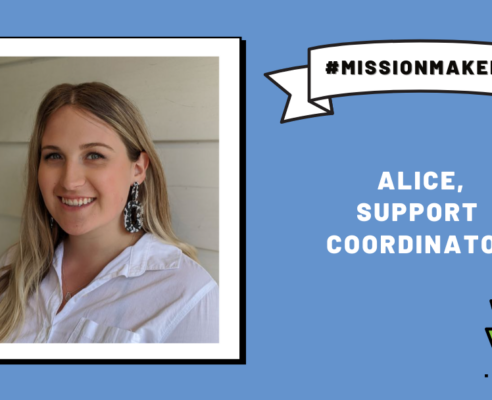
Mission Makers: Alice—connecting with kids!
Each month, our blog series “Mission Makers” features the story of a staff member. This month, Alice tells us that her favourite part of working at LDS is interacting with the kids.
Learn More
It’s the most wonderfully stimulating time of the year.
The holidays can be magical, full of sparkling lights, festive music, and opportunities to connect with loved ones. However, it can also be a time of heightened stress and overstimulation, particularly for neurodivergent individuals and families with neurodivergent children.
With so many expectations to fulfill – decorating homes, shopping for gifts, attending gatherings, preparing meals, and meeting social norms to have the “perfect holiday” – it is easy to feel overwhelmed. Add sensory input like bright, flashing lights, strong holiday scents, the hum of crowded spaces, or unexpected changes to routines, and the holidays can shift from magic to misery.
This is particularly true for neurodivergent individuals and families with neurodivergent children. While some aspects of the season are easily cherished, others can be extremely overwhelming. Finding a balance between experiencing the joy and magic of the holidays and avoiding burnout or overstimulation is essential.
Being proactive is key to reducing these challenges. Planning, setting boundaries, and incorporating flexibility and coping tools into your holiday routine can create a more enjoyable experience for everyone.
Consider which activities and commitments on your list may be overstimulating and prioritize the most important events. Plan downtime between events and incorporate calming sensory activities such as aromatherapy or downbeat music. Let your hosts know in advance if you need accommodations (quiet space, preferred seating, etc.) or if you need to leave early. It is okay to skip events or leave early if the environment becomes too much. Practice polite ways to decline invitations or excuse yourself. Help others understand the importance of sensory-friendly practices.
Preview the day and consider how you might handle overwhelming situations. Social stories or visual schedules can help young children understand what to expect. Create a “holiday survival kit” with noise-cancelling headphones, sunglasses, fidgets, or snacks to help manage sensory overwhelm in busy environments. Limit your exposure to large, overwhelming spaces and events. Plan to go shopping during less busy hours (early morning, late evening) or use online shopping. Practice grounding exercises like deep breathing to help regulate emotions.
Rather than trying to meet all societal or family expectations, consider redefining what the holiday season means to you and your loved ones. Traditions can be meaningful, but they do not have to be rigid. Prioritize meaningful moments with those who bring you joy and comfort. Let go of unnecessary tasks – saying no to baking 100 cookies or hosting a dinner is okay. Sometimes, watching the snow fall while drinking a cup of hot chocolate can be just as meaningful as a large celebration.
The holidays can be challenging, but they are also an opportunity to reflect on what truly matters – connection, joy, and creating memories. The holidays can amplify feelings of guilt or inadequacy, especially when managing sensory needs or setting boundaries. It is crucial to practice self-compassion and remind yourself that it is okay to celebrate differently. Focusing on what works for you and your family while honouring everyone’s comfort can create a memorable holiday season for all the right reasons. By planning, advocating for needs, and embracing flexibility, neurodivergent individuals and families can celebrate in an authentic and comfortable way.
[Sensory overload occurs when too much sensory information overwhelms the brain’s processing ability. This can lead to feelings of discomfort, anxiety, irritability, or even shutdowns and meltdowns.]
– Becky Bishop, Senior Manager, Youth and Adult Programs
LDS is a community of dedicated professionals who write collaboratively. We recognize the contribution of unnamed team members for their wisdom and input.